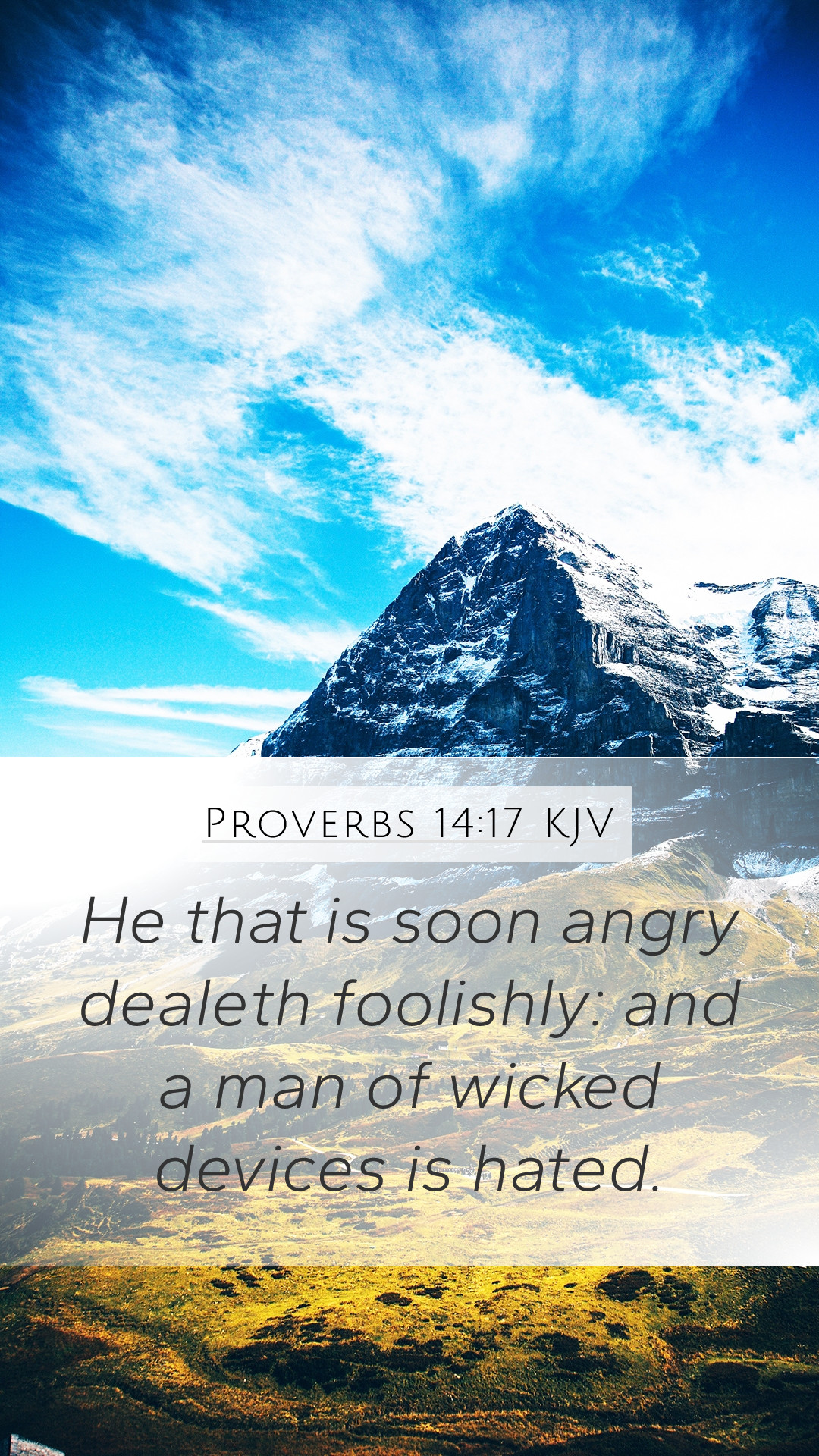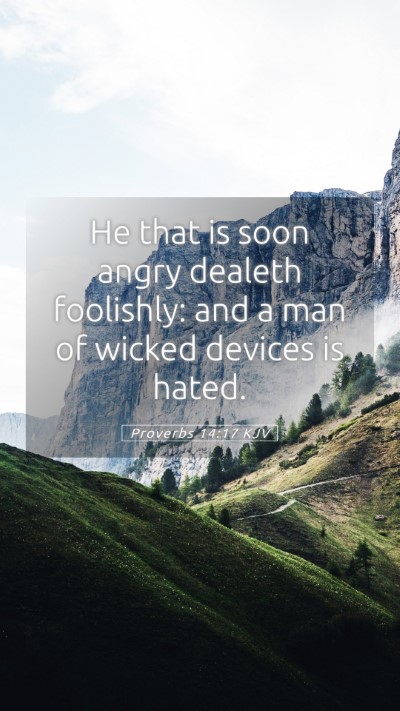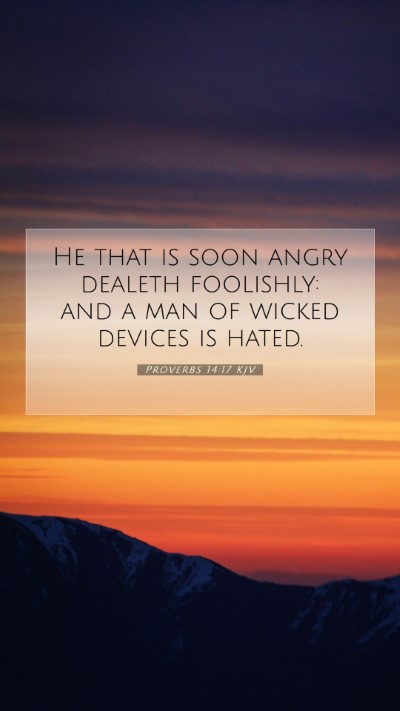Understanding Proverbs 14:17
The verse Proverbs 14:17 states:
“He that is soon angry dealeth foolishly: but a man of understanding holdeth his peace.”
This verse presents a profound teaching on the nature of anger and wisdom. It can be unpacked into several key insights, gleaned from the works of esteemed biblical commentators such as Matthew Henry, Albert Barnes, and Adam Clarke.
Key Themes and Insights
-
The Folly of Quick Anger
According to Matthew Henry, the verse warns against the impulse to react with anger. He emphasizes that acting swiftly in anger often leads to foolish decisions that can have dire consequences.
-
Value of Restraint
Albert Barnes notes that a wise person is characterized by self-control and patience. The ability to hold one's peace amidst provocation is seen as a sign of true understanding and strength.
-
Understanding in Action
Adam Clarke points out that the 'man of understanding' not only possesses knowledge but also applies it in a practical manner. This type of wisdom manifests in emotional regulation, particularly in how one responds to anger.
Exegesis and Interpretation
In-depth exegesis of this verse reveals layers of meaning:
-
Anger as a Human Emotion
The verse acknowledges anger as a natural emotion but warns against its unchecked expression. Wise individuals understand the impact of their emotional reactions.
-
Comparison of Character
Proverbs often use contrasting characters to teach moral lessons. In this case, the hasty individual is juxtaposed with the composed individual, underscoring the moral superiority of restraint.
Application of Proverbs 14:17
When applying this verse to daily life, reflect on the following:
-
Self-Reflection
Consider how often you let anger dictate your responses. Recognizing triggers can help in managing emotional reactions effectively.
-
Mindfulness Practices
Engaging in mindfulness can help cultivate a peaceful presence that counters the urge to react in anger.
-
Seeking Wisdom
In times of conflict, consult scripture and wise counsel to guide responses rather than relying solely on emotional impulses.
Related Cross References
This verse resonates with several other scriptural teachings, including:
- James 1:19 - “Wherefore, my beloved brethren, let every man be swift to hear, slow to speak, slow to wrath.”
- Ephesians 4:26 - “Be ye angry, and sin not: let not the sun go down upon your wrath.”
- Proverbs 15:18 - “A wrathful man stirreth up strife: but he that is slow to anger appeaseth strife.”
Conclusion
Proverbs 14:17 provides crucial bible verse commentary that encourages individuals to reflect on their reactions to anger and the importance of self-control. Through careful scripture analysis and application, this verse serves as a guiding principle for living a wise and peaceful life.


